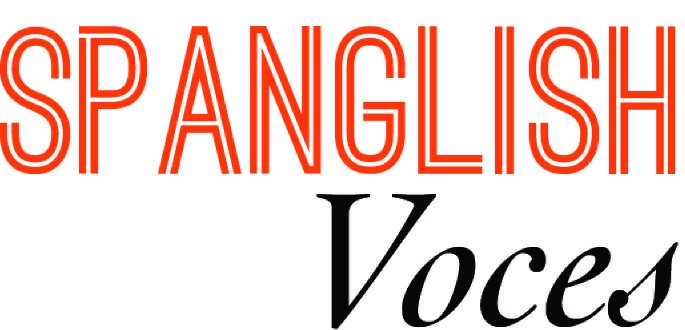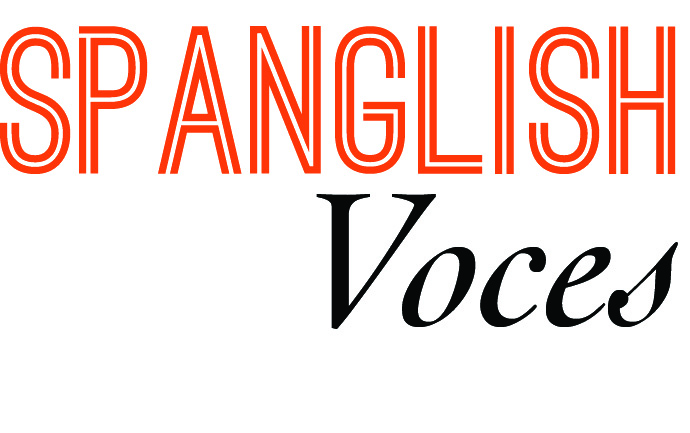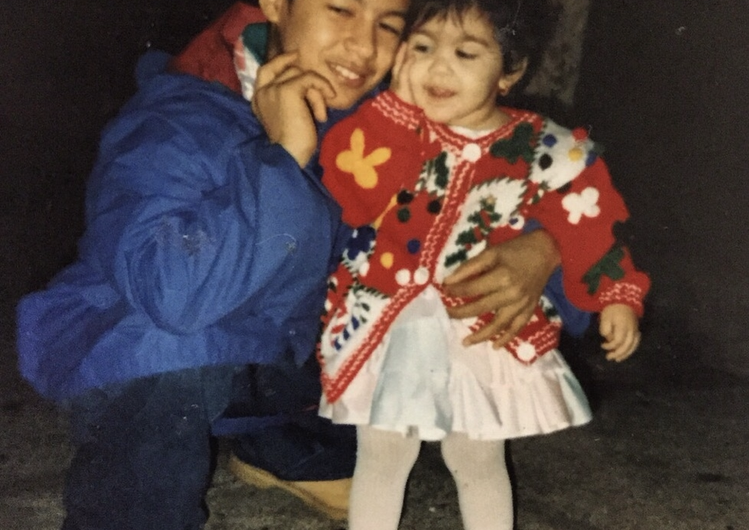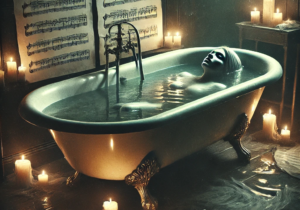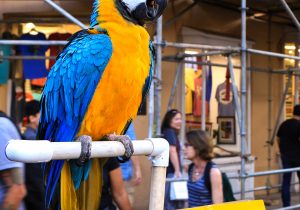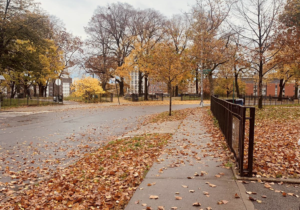Él se mató y en vez de tomar su muerte como una oportunidad para tratarnos diferente, y entender que la salud mental es algo que necesita la misma atención que le ponemos a todo los otros dolores, –Porque no sé ustedes, pero en la familia mía siempre hay un dolor nuevo, se diagnostican solos y de una vez andan buscando pastillas sin receta— Con esta experiencia aprendí que el abuso familiar, el dolor en silencio, y el trauma ahogan, y salvarte se convierte en otra de tus responsabilidades. Fue más fácil decir que él estaba loco que admitir que la misma familia lo desamparó, se burlaron, y tuvieron el descaro de decir que él no habló. I was twelve years old when i found my brother dead, It ‘s been seventeen years since the tragedy y pregúntame si me han preguntado cómo me ha ido.
After his passing, I became the only child in the house. It almost felt like I was forced to become my parents’ parent, porque en esa vuelta no solo fue mi hermano que murió, sino que también perdí a mi madre, a la que conocí antes de la pérdida más grande que ha sufrido mi familia. Having the responsibility of being “strong” for mami, came at the cost of dismissing myself. I never had the chance to speak about it. I couldn’t show any signs of sadness or pain because I was constantly compared to my brother and always had this pressure of not doing what he did. While I mastered hiding and dissociating, my family acted like nothing happened–one thing we are pros at in my family is acting, Hollywood nos queda chiquito.
At the peak of my teenage years I was experiencing depression, PTSD, and chronic anxiety, but we couldn’t talk about therapy porque «eso es para los locos». The need to escape my own thoughts and sorrows grew stronger the older I became. Smoking weed and being out of the house was how I learned to deal with the flashbacks that I felt I couldn’t speak about due to the fear of being cast crazy. I did not know that I had a “traumatic experience,” let alone that, that event scarred me profoundly enough to cause a chemical imbalance–because I was always told que a mí no me había pasado nada, that I had to be grateful porque estaba viva y tenía familia…. pero, ¿adónde estaban? Ni un abrazo, ni palabras de aliento… pero chisme, críticas, y opiniones sobraban por un tubo y siete llaves. For decades it has been crazy— not creative, not different, not art, not medicine, not talent, not a gift, not a lineage need, not a job..Crazy is what they call anything that threatens the default programming or exposes the rotten roots of our designated tree. Doing anything outside of the box they created for us is crazy.
Y a mí lo que me da rabia es como apoyamos y celebramos a las personas desconocidas. Si en la noticia sale algo sobre un suicido de un famoso, o si el vecino dice que tiene depresión se le compadece pero al de la casa se le dice que está loco, que lo que está es de baboso. I will never forget the day my brother took a chair and put it in the middle as he asked us all to sit in a circle to talk about how we felt. He said we had to start learning to talk about our feelings instead of talking about each other. Everybody got up, laughed at him, and called him crazy. El queria saber como nos sentiamos but instead of being uplifted and supported by his family he was shamed, joked about, and talked about.
I was twenty-three when I learned that my unexplainable need to isolate, detach and avoid was in fact a coping mechanism. That’s how I learned to keep myself safe. I missed out on many great opportunities and beautiful life moments because it was challenging to show up. I did not have the tools nor the language to understand what was happening inside of me. The flashbacks happened frequently, and it often felt paralyzing, but I never spoke about it. It is a common PTSD symptom that is more than a memory, it involves the emotional and physical sensations you felt during the traumatic event. Usually, it happened when I was trying to sleep, which is why I smoked a lot of weed, but that day it happened right before I was getting ready to go to the acting conservatory, I was attending at the time. Because of the episode, I did not show up to class or let my coach know that something had come up. —There were rules in that program, and being absent was unacceptable unless you had previously communicated it. In a matter of seconds, I went from preparing myself to have a great day to reliving the precise moment when I opened the door and found my brother dead. Yo sabía que del otro lado de la cortina no había nada pero mi mente se trancó en ese momento y ahí duré casi tres horas ahogandome en el dolor de esa imagen y battling the thoughts that were telling me que yo estaba loca. No sé como pude salir del baño, pero salí y cuando me di cuenta that I was late for class, and was not going to make it to Brooklyn on time, ahí sentí como me acorraló la vergüenza y el auto-sabotaje, que por años nunca entendí. While my coach and classmates were worried, trying to contact me, I was in bed heavily wishing it was a dream, hoping I was making it up, but it wasn’t. I had two options: make up a lie, continue hiding this nightmare, or be vulnerable and share my truth. Either way, there would be consequences for missing class, so I followed the truth. I am so grateful I did because it was at that moment that my coach told me about PTSD and how trauma lives in the body, he referred me to EMDR Therapy and offered me much-needed empathy, compassion, and listening ears. EMDR stands for Eye Movement Desensitization and Reprocessing, this therapy is a mental health treatment technique that involves moving your eyes a specific way while you process traumatic memories. EMDR aims to help you heal from trauma or other distressing life experiences.
Choosing to heal has taught me that this is a lifetime commitment. This trauma happened when I was twelve, and I didn’t begin to process it until I was twenty-three years old. I am twenty-nine today, and all I can think about is how intergenerational trauma is passed down and how silenced pain is one of the things that keeps deteriorating my family. Everybody has experienced life-changing, painful events that they had to act like never happened. From mamá to all of my aunts and uncles, I noticed that they have mastered being “highly functioning.” El lenguaje de la salud mental is non-existent for many reasons. Starting with the system and ending with comfort. Opening up the door to heal is hard and uncomfortable y la verdad es que esta vaina no es para todo el mundo. Tuve que despegarme de mi familia para poder perdonar y sanar esas heridas. How they learned to treat each other and communicate wasn’t their fault, but my healing is my responsibility. Ahora soy yo la loca que habla de vaina rara según ellos. Con mucho orgullo ando creando espacios seguros para tener conversaciones incómodas que le dan luz a la salud mental y el cuerpo emocional. Showing up has become much easier now because every time I do, I know it’s a privilege to take up space and speak about the things we are taught to hide. This is how I choose to honor my tree. Not only do I do it for me but, most importantly, for those that came before me and those that are coming after me.
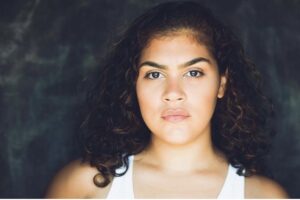 Arlenys Morel is from the streets of Uptown/Harlem. A Dominican-American raw storyteller, limitless writer and a Meisner technique trained actor. She has featured as a poet for the Dominican Writers association and Beatnix by La bruja. A Wednesday night slam winner at the Nuyorican Poets Cafe. Storytelling is how she honors her lineage and heals herself from the intergenerational trauma she inherited. Committed to rewiring and redesigning her own family tree through her creative gifts, she writes for dreamers & guerreras.
Arlenys Morel is from the streets of Uptown/Harlem. A Dominican-American raw storyteller, limitless writer and a Meisner technique trained actor. She has featured as a poet for the Dominican Writers association and Beatnix by La bruja. A Wednesday night slam winner at the Nuyorican Poets Cafe. Storytelling is how she honors her lineage and heals herself from the intergenerational trauma she inherited. Committed to rewiring and redesigning her own family tree through her creative gifts, she writes for dreamers & guerreras.
